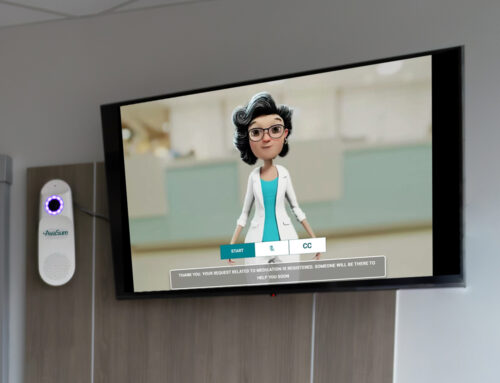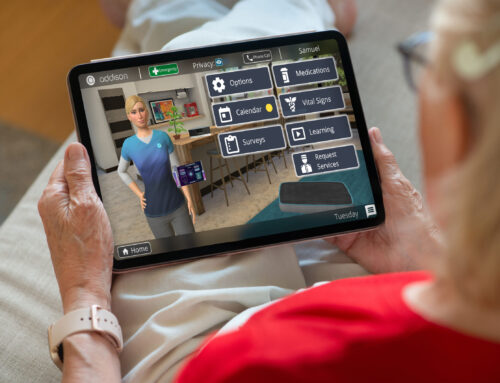Insights from Education and Healthcare Sectors Point to Need for New Policies and Training to Address Post-COVID-19 Learning
A new national survey released today by the Collaborative Institutional Training Initiative (CITI Program), a division of BRANY (Biomedical Research Alliance of New York), reveals progress towards a return to in-person learning and research, against a backdrop of persisting concerns including access to vaccines and new COVID-19 variants. The survey of more than 7,000 respondents included university students and faculty, as well as nurses, physicians, and other healthcare professionals and was fielded between March 11-21, 2021. As leaders in clinical research, both academic and healthcare respondents are optimistic that some pre-pandemic practices will return, once organizations address transition planning.
“CITI Program is a trusted partner for academic medical centers across the country. As institutions prepare for an unprecedented ‘back to school’ this fall, our hope is that CITI Program’s real-world insights will help academic and medical institutions stay in step with the right training and options to address this shifting and evolving landscape,” said Paddy Mullen, Chief Executive Officer at BRANY. “What the data is telling us is that a return to ‘normal’ means something different depending on the setting.”
Higher Education: More Cautious to Return In-Person
The survey responses come at a time when academic organizations are preparing for a new normal, following more than a year of virtual/hybrid learning. In fact, more than a dozen universities are now mandating student vaccinations for a return to campus this fall, yet re-opening decisions remain unpredictable. For example, approximately 1,800 schools changed their policy at least once between March and September 2020.
Despite new perception polling showing vaccine unwillingness among college-aged adults, CITI Program’s survey data shows students and faculty in higher ed are actually aligned when it comes to needs and concerns around going back to school. Parallels between the two groups include:
- The majority of students (72.2%) and faculty (70%) report improved vaccine availability would raise confidence in the ability of their organization to return to pre-pandemic normalcy
- More than half of students (51.4%) and faculty (52.2%) see emergence of new coronavirus variants as a roadblock to achieving normalcy at their organization
- Both students (59.9%) and faculty (59.6%) think some new ways of working and learning during the pandemic will stay, but many will return to pre-pandemic practices
Healthcare: The Pandemic’s Impact on Required Training & Clinical Research
While many aspects of healthcare continued throughout the pandemic thanks to increased use of telehealth and adapted protocols, the healthcare community experienced an unprecedented 70% drop in clinical trials in April 2020. This highlights the importance of in-person research capabilities to ensure proper enrollment and trial methods. Physicians and nurses polled were equally optimistic on the ability for their profession to return to normal by the end of this year:
- Half of physicians (52%) and nurses (48.3%) are very or extremely confident in their organization’s ability to return to normalcy by the end of 2021
- Doctors and nurses both report they expect an increase in support for biomedical research and telemedicine by 2022
“In an accelerated shift to digital learning, it is more important than ever to ensure that clinicians and future healthcare professionals driving cutting-edge and life-saving research are being equipped with the resources they need,” Bharat Krishna, Managing Director, CITI Program. “Through our on-demand trainings and education platform, CITI Program is able to provide a sense of stability and confidence across universities and medical centers looking to unify their teams as they navigate new protocols and post-pandemic environments.”
Diverging Opinions Across Sectors
The survey reveals differences between healthcare and education spaces as it relates to shifting their working environment and addressing needs for re-opening.
-
- Vaccine Concerns: Students (62.6%) and faculty (60.2%) are more likely to cite availability of vaccines as a roadblock; physicians (46.5%) and nurses/nurse practitioners (50.8%) are more likely to cite willingness of persons to get vaccinated
- Research Priorities: More students (59.36%) and faculty (49.28%) expect resources to increase for biomedical research in the next year compared to physicians (33.51%)
- Student Confidence in Organizations: Students (19.56%) were the least likely to rank their organization’s preparedness in the past 12 months as excellent compared to a quarter of academic faculty (24.52%), 31.47% of physicians and 30.86% of nurses
About the Survey
At the one-year anniversary mark of the pandemic, CITI Program surveyed a sample of their learners regarding their experiences over the past year, and the impact of COVID-19 on their organizations. A total of 7,688 CITI Program learners responded to the CITI Program COVID-19 Survey regarding their experiences during the period. Conducted from March 11 to 21, the anonymous survey recruited participants from a random sample of 70,100 persons (out of over 1.5 million learners) who completed a CITI Program course in the last 12 months and indicated a willingness to be contacted for such efforts.
About CITI Program
CITI Program (Collaborative Institutional Training Initiative) is the trusted standard in research, ethics, and regulatory compliance training. Founded in 2000 by the University of Miami, CITI Program now provides training to more than 2,400 organizations worldwide. The majority of U.S. higher education research institutions, U.S. medical schools, hospitals, as well as digital health and global healthcare organizations subscribe to CITI Program’s courses and content. CITI Program is dedicated to serving the training needs of colleges and universities, healthcare institutions, technology and research organizations, and governmental agencies, as they foster integrity and professional advancement of their learners.
About BRANY
BRANY is a national organization providing a continuum of research support services to hospitals, academic medical centers, investigators, CROs, biotech, device and digital health companies. BRANY’s services, which are designed to improve research efficiency and quality, include IRB review, clinical trial budgeting and contracting, research billing and collections, Medicare coverage analysis, and technology solutions including Protocol Builder® and SMART CTMS.
BRANY’s family of companies includes the CITI Program and the HRP Consulting Group (HRP), a consulting firm focused on human research protections and providing a broad array of consulting services to support organizations with their research ethics and compliance efforts.
BRANY was founded in 1998 by four nationally-ranked academic medical centers: NYU Grossman School of Medicine, Montefiore Medical Center, Icahn School of Medicine at Mount Sinai, and Northwell Health.












